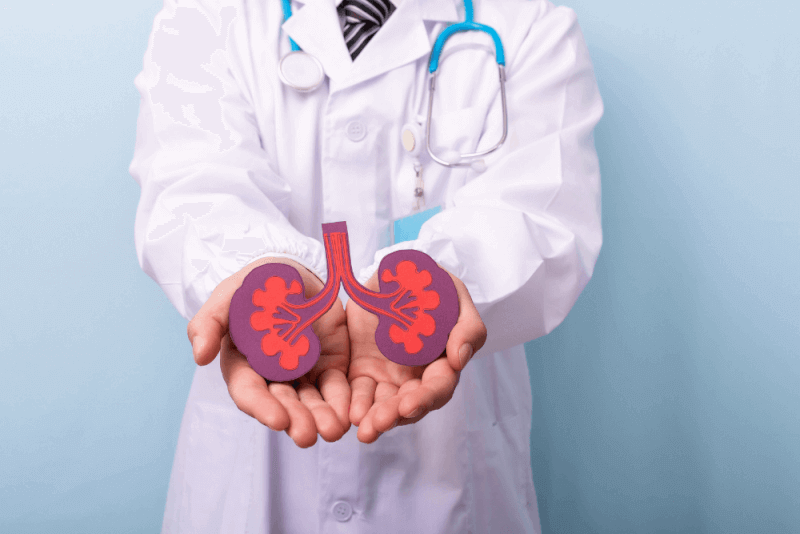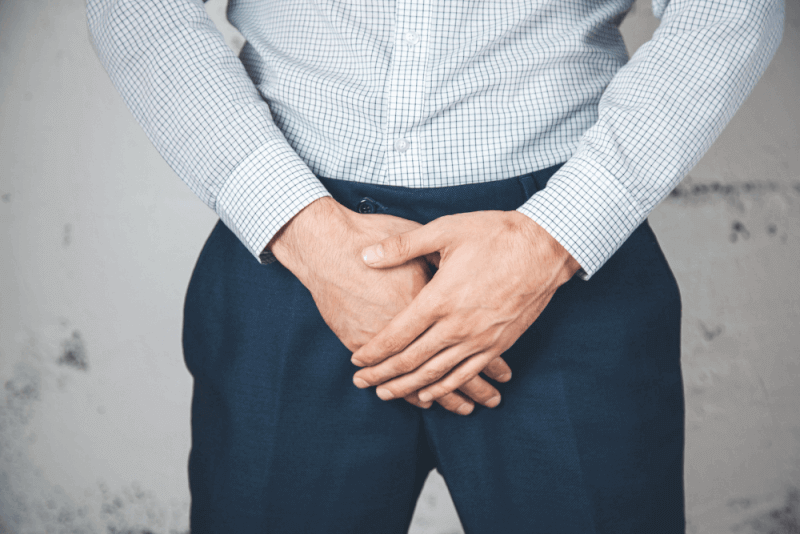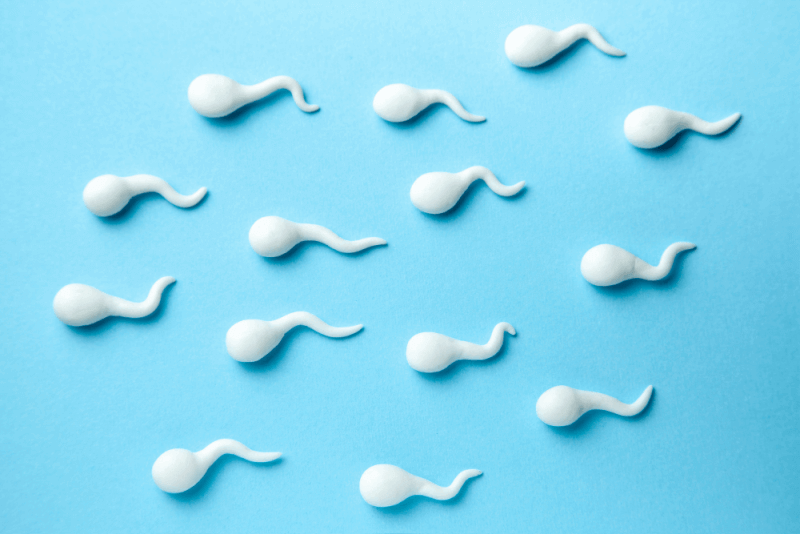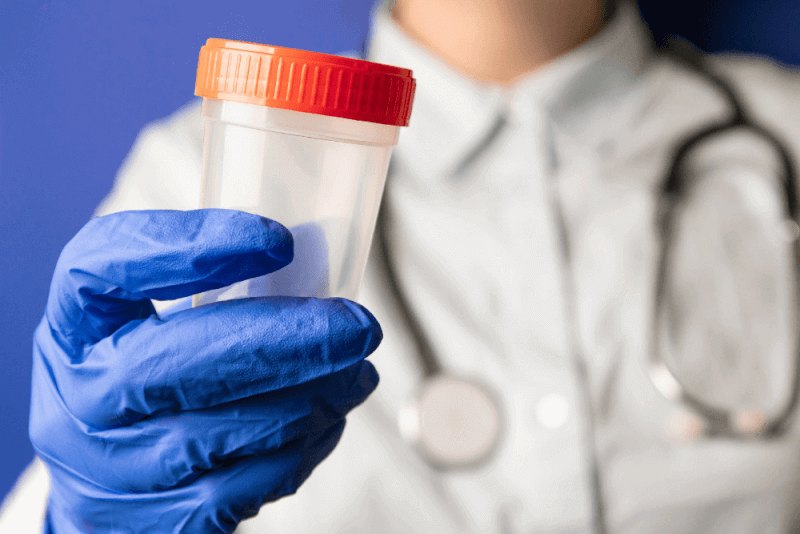What is Kidney Enlargement?
Kidney enlargement, also known as hydronephrosis, occurs when urine cannot be drained from the kidney, causing it to accumulate in the kidney. This condition is due to an obstruction in the urinary tract or an abnormality that prevents proper urine drainage.
Kidney enlargement can occur at any age, and when seen in infants, it can be diagnosed in the womb or immediately after birth.
Kidney enlargement can occur suddenly or be chronic. It can also be seen in one or both kidneys, and its severity varies.
Diagnosis of Kidney Enlargement
It is extremely important for kidney enlargement to be diagnosed quickly to prevent various complications that can arise if the condition persists. The tests used to diagnose kidney enlargement include:
Physical Examination
The physical examination begins with identifying the symptoms observed in the patient. Then, the area around the kidneys is checked for tenderness. In men, a rectal exam may be performed to determine if the prostate is enlarged. In women, a pelvic exam may be performed to evaluate the ovaries.
Urine Test
Urine tests examine the urine for infection, bacteria, and stone crystals. In some patients, a catheter may be necessary to obtain a urine sample.
Blood Tests
A complete blood count is used to check for infection. Kidney function tests, including creatinine, estimated GFR, and blood urea nitrogen, may also be performed.
Imaging Procedures
The primary imaging method used for kidney enlargement is ultrasound. In addition, computed tomography (CT) and MRI may be used. Diagnosis in fetuses can be made in the first trimester but usually occurs at around 20 weeks.
Symptoms of Kidney Enlargement
Symptoms of kidney enlargement often vary depending on the cause. Typically, no symptoms are observed. If kidney enlargement occurs before birth, symptoms may not appear after birth.
If kidney enlargement causes symptoms, the following may be observed:
- Pain in the abdomen, back, or sides
- Urination that is more or less frequent than usual
- Nausea
- Vomiting
- Incomplete emptying of the bladder
- Painful urination
- Urinary tract infection
- Blood in the urine
When urine remains in the kidneys, there is an increased risk of infection, as it promotes bacterial growth in the urinary tract. Symptoms of a urinary tract infection may include:
- Fever
- Chills
- Fatigue
- Burning and pain during urination
- Cloudy urine
Causes of Kidney Enlargement
The most common cause of kidney enlargement is partial or complete obstruction of the urinary tract. Various factors can cause this condition. Common causes of urinary tract obstruction in adults include:
- Kidney stones
- Urethral obstruction
- Tumors
- Benign prostate
- Narrowing of the urinary tract due to infection or birth defects
- Nerve and muscle issues
- Urinary retention
- Vesicoureteral reflux
- Ureterocele
In women, the most common causes of kidney enlargement include:
- Pregnancy
- Uterine prolapse
- Cystocele
Complications of Kidney Enlargement
Severe kidney enlargement can damage the kidneys, potentially leading to kidney failure. If kidney failure occurs, dialysis or kidney transplantation may be necessary.
Treatment of Kidney Enlargement
The primary goal of treating kidney enlargement is to restore urine flow by widening the urinary tract. This reduces swelling and pressure in the kidneys. The treatment plan depends on the underlying cause. In mild cases, no treatment may be recommended. In severe cases, surgical methods may be considered. If the blockage occurs suddenly, a nephrostomy tube may be placed to drain excess urine. Additionally, a urethral stent can be used to keep the urinary tract open, allowing for proper urine drainage.
Kidney Stones
If kidney enlargement is due to kidney stones blocking the urinary tract, the following treatment options may be used:
Shock Wave Lithotripsy
This is the most common method used to treat kidney stones. High-energy shock waves break the stones into smaller pieces that can be passed through the urine.
Ureteroscopy
A thin tube is inserted into the urethra to break up the stones. This method can be used to break stones in the bladder or lower urinary tract. Ureteroscopy can be used in combination with other methods.
Antibiotic Treatment
If the urinary tract obstruction is due to an infection, antibiotics are prescribed for treatment.
Surgery for Kidney Enlargement
Surgery is performed for kidney enlargement caused by large stones, tumors, scar tissue, or other reasons. It is generally recommended when the obstruction is caused by a mechanical factor.
Surgical Methods for Kidney Enlargement
The surgical method for treating kidney enlargement varies depending on the cause. Endoscopic or laparoscopic techniques are typically used in surgery. Prostate enlargement or urethral strictures are treated with cystoscopy. Repair is performed for narrowing at the kidney outlet, narrowing between the ureter and bladder, and vesicoureteral reflux. If the obstruction is due to tumors in the abdominal organs, open surgery may be performed depending on the tumor's condition and severity.
Life After Kidney Enlargement Surgery
After surgery for treating kidney enlargement, patients should pay attention to the following points:
- Regular follow-up appointments with the doctor
- Pain after surgery is normal. Painkillers prescribed should be used correctly to control pain.
- A healthy diet will speed up the recovery process.
- Light exercises or walking can be done during the recovery period, but heavy exercises should be avoided.
- If there are stitches after surgery, follow the care instructions carefully.
- Pay attention to the fluid intake recommended by the doctor.
- If urinary problems occur after surgery, consult a doctor.
Kidney Enlargement in Babies
Kidney enlargement in babies can be seen both in the womb and after birth. It can be caused by many different factors. Most cases are mild to moderate and resolve on their own without any treatment.
Causes of Kidney Enlargement in Babies
The causes of prenatal kidney enlargement in babies include:
- Increased urine production by the fetus
- Obstruction in the urinary tract at some point
- Reflux of urine from the bladder to the kidneys








